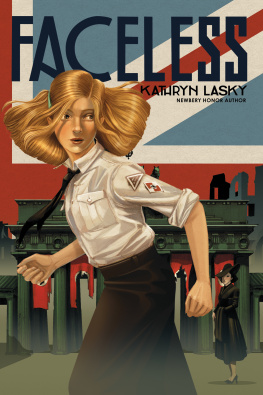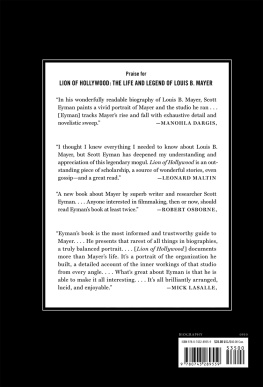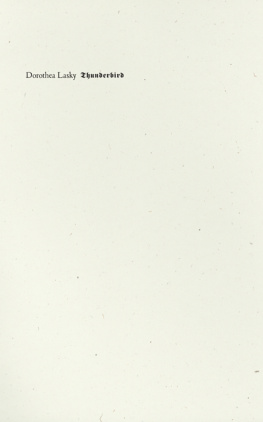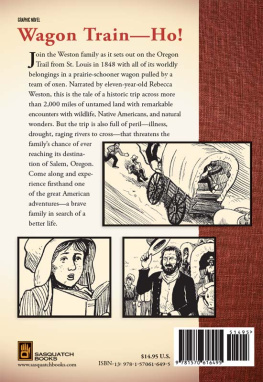The Diary of Lt. Melvin J. Lasky
The Diary of Lt. Melvin J. Lasky
Into Germany at the End of World War II

Edited by Charlotte A. Lerg

First published in 2023 by
Berghahn Books
www.berghahnbooks.com
2023 Charlotte A. Lerg
All rights reserved. Except for the quotation of short passages for the purposes of criticism and review, no part of this book may be reproduced in any form or by any means, electronic or mechanical, including photocopying, recording, or any information storage and retrieval system now known or to be invented, without written permission of the publisher.
Library of Congress Cataloging-in-Publication Data
Names: Lasky, Melvin J., author. | Lerg, Charlotte A., editor.
Title: The Diary of Lt. Melvin J. Lasky: Into Germany at the End of World War II / edited by Charlotte A. Lerg.
Description: New York: Berghahn Books, [2022] | Series: Transatlantic Perspectives; 7 | Includes bibliographical references and index.
Identifiers: LCCN 2022027937 (print) | LCCN 2022027938 (ebook) | ISBN 9781800736955 (hardback) | ISBN 9781800736962 (ebook)
Subjects: LCSH: Lasky, Melvin J.Diaries. | United States. Army. Army, 7thHistorySources. | Military historians--United States--Diaries. | GermanySocial conditions19451955Sources. | United States. Army, Europe. Historical DivisionBiography. | World War, 19391945Personal narratives, American. | World War, 19391945CampaignsWestern FrontSources. | EuropeDescription and travel.
Classification: LCC D769.26 7th .L37 2022 (print) | LCC D769.26 7th (ebook) | DDC 940.54/1273092 [B] dc23/eng/20220712
LC record available at https://lccn.loc.gov/2022027937
LC ebook record available at https://lccn.loc.gov/2022027938
British Library Cataloguing in Publication Data
A catalogue record for this book is available from the British Library.
ISBN 978-1-80073-695-5 hardback
ISBN 978-1-80073-696-2 ebook
https://doi.org/10.3167/9781800736955
Contents

Charlotte A. Lerg and Maren Roth
Maren Roth
George Blaustein
Jana Aresin
Charlotte A. Lerg
Katharina Gerund
Michael Kimmage
Transatlantic Perspectives
Series Editors: Christoph Irmscher, Indiana University Bloomington, and Christof Mauch, Ludwig-Maximilians-Universitt, Mnchen
This series explores European and North American cultural exchanges and interactions across the Atlantic and over time. While standard historical accounts are still structured around nation states, Transatlantic Perspectives provides a framework for the discussion of topics and issues such as knowledge transfer, migration, and mutual influence in politics, society, education, film, and literature. Committed to the presentation of European views on America as well as American views on Europe, Transatlantic Perspectives offers room for the publication of both primary texts and critical analyses. While the series puts the Atlantic World at center stage, it also aims to take global developments into account.
Volume 7
The Diary of Lt. Melvin J. Lasky: Into Germany at the End of World War II
Edited by Charlotte A. Lerg
Volume 6
Anglo-American Relations and the Transmission of Ideas: A Shared Political Tradition?
Edited by Alan P. Dobson and Steve Marsh
Volume 5
The Arkansas Regulators
Friedrich Gerstcker, translated by Charles Adams and Christoph Irmscher
Volume 4
The Underground Reader: Sources in the Trans-Atlantic Counterculture
Edited by Jeffrey H. Jackson and Robert Francis Saxe
Volume 3
From Fidelity to History: Film Adaptations as Cultural Events in the Twentieth Century
Anne-Marie Scholz
Volume 2
Women of Two Countries: German-American Women, Womens Rights and Nativism, 18481890
Michaela Bank
Volume 1
Journey Through America
Wolfgang Koeppen
Illustrations

Introduction
Journal of a Conscript
Charlotte A. Lerg and Maren Roth

FIRST INDORSEMENT. JOURNAL OF A CONSCRIPTin 1945, twenty-five-year-old Melvin J. Lasky boldly inscribed these words on the cover of his 250-page typescript. Lasky began his diary on 22 January 1945 in Fort Totten, New York while waiting to be shipped to Europe with the US Army, and concluded it in Frankfurt, Germany almost a year later, on 19 December 1945. He chronicled his time as an American GI en route to, and into Germany, filling page after page with the narrowly spaced text of his Army-issued typewriter. However, what may once have been the ambitious book project of a young aspiring author and intellectual, was left unpublished and soon forgotten. A brief excerpt appeared in the left-leaning intellectual magazine Common Sense in June 1945, which seems to have been the only instance of any part of the diary being published at the time. Entitled Travel Diary in Germany, the entries from 7 and 11 April 1945 were printed anonymouslypresumably because Lasky feared Army reprimands (Anonymous 1945). Asked to comment on what he thought had been Laskys plans for the diary, his longtime assistant Marc Svetov replied: He mightve thought he would publish [it], but I think events just transpired, and he had other ambitions (Marc Svetov, email message to Maren Roth, 14 May 2015).
After Lasky left the military in 1946, his career picked up, at first gradually and then, starting in 1947, more quickly as events in Allied-occupied Berlin took him on the path that he is best known for today: He was one of the initiators of the Congress for Cultural Freedom (CCF) and became the editor of two highly acclaimedalbeit partially CIA-fundedliterary journals; a transatlanticist, liberal anti-communist of the consensus era, and a cultural cold warrior par excellence. In fact, while Lasky features in quite a few studies of the transatlantic intellectual scene of the Cold War, he tends to be a figure on the sidelines, at best pulling strings in the background.career, his views on Germany, the United States, and transatlantic relations, reading his war diary is highly instructive. Sociologist Daniel Bell once remarked that his longtime friend Melvin J. Lasky always remained but a visiting member among the so-called New York intellectuals. He went to Europe and stayed therethat made all the difference (Bell 2010, 45).
Content and Themes
Written on the verge of the most politically active phase of his life, Laskys 1945 diary illustrates formative moments and reveals personal insights into the mindset of a young man who was convinced of his own intellectual potential, but not quite sure yet how best to put it to use. The diary gives a first glimpse of the political and cultural views he would go on to assert. They emerge from his prewar youth and education, his social milieu, and his political conditioning, mostly in New York City, complemented by the experiences he gathered while serving with the US Army. As Michael Kimmage shows in his contribution to this volume: the diary clearly bears the New York intellectuals stamp, and a personal trajectory to that effect appeared to be already in place when Second Lieutenant Lasky embarked for Europe in 1945: America discovering Russia was a precious spectacle! he reports from Berlin to his mentor Dwight Macdonald. At the same time, the experience of the war, specifically the experience of being part of the occupation forces, clearly impacted his commitment to Europe in general, and to Germany in particular. The diary enables us to see this pivotal development unfold. Lasky also filled his journal with literary allusions and remarks, leaving us a record of his personal cultural frame of reference. The everyday encounters, reflections, and emotions Lasky consigned to the page become, as George Blaustein puts it in his chapter, the precondition for the postwar transatlantic exchanges.
Next page









